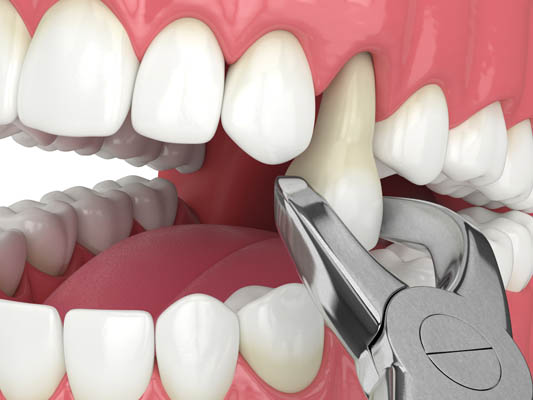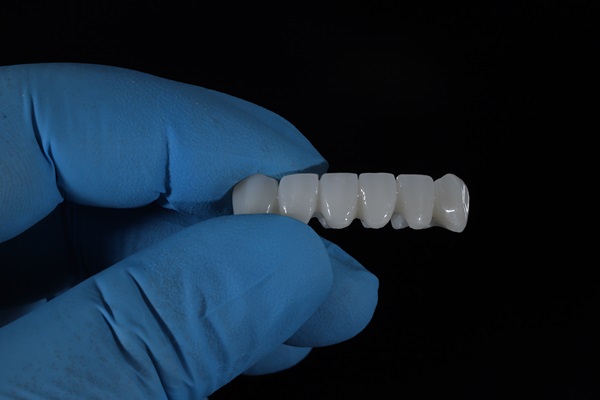When Is Tooth Extraction Recommended?
, or dental extraction, is the removal of a tooth from the mouth. There are many different reasons that a dentist may recommend tooth extraction, and it can be performed on any tooth inside the mouth. It is helpful to understand why a dentist may recommend it and how it can help your long-term oral health when it is necessary.
When tooth extraction might be necessary
Many people avoid removing a damaged, broken or impacted tooth because they do not understand the importance and how beneficial removal can be. In other instances, the person may not realize that the tooth is an issue. The following is an overview of four occasions when tooth extraction might be necessary.
Severe damage
One of the most common reasons for tooth extraction is to address a tooth that is severely damaged. Of course, dentists want to do everything within their power to save a severely damaged tooth from needing removal, and they may first look into all potential options, including dental crowns, root canal therapy, etc. However, there are instances when a tooth simply cannot be saved, and the best course of action is to remove the tooth and replace it with a dental implant, fixed bridge or partial denture.
Broken tooth
Although it is rarer, a broken tooth may require a tooth extraction in certain instances. A broken tooth, also called a fractured cusp, refers to dental trauma that causes part of the tooth to become cracked, chipped or damaged in another way. Broken teeth that are not severe do not require extraction and can be saved through indirect dental restorations, such as a dental crown or dental veneer. However, severely broken teeth that extend down toward the root of the tooth and cause the tooth to become knocked loose may require extraction and replacement.
Impacted teeth
Impacted teeth do not always require removal, but they may if they push up against adjacent teeth. Perhaps most commonly, wisdom teeth are removed when they become impacted, as it can create an oral health concern. However, other teeth can be impacted as well. It is best to have teeth that are impacted examined by a dentist to determine what action, if any, is best.
Orthodontic purposes
Some dentists and orthodontists may recommend tooth extraction if there is a tooth inside of the mouth that makes it hard or impossible to improve teeth alignment and jaw alignment. Generally, this is because teeth are overcrowded inside of the mouth or there are too many teeth. In some instances, the teeth may be healthy, making the extraction primarily cosmetic. However, an orthodontist or dentist will not recommend tooth extraction for orthodontic purposes unless the extraction is completely safe.
Find out more about tooth extraction today
Tooth extraction is never a desirable experience, but it is sometimes necessary. If you have concerns with one of your teeth and want to learn more about tooth extraction, then get in touch with us today to arrange a time to come in for an initial visit.
Are you considering tooth extraction in the Irvine area? Get more information at https://irvineimplantdentistry.com.
Check out what others are saying about our dental services on Yelp: .
Recent Posts
You may need a wisdom tooth extraction already. Wisdom teeth often erupt between 17 and 21 years of age. Some people ignore their wisdom teeth. Others have no choice but to pay attention to theirs. In some cases, extracting the wisdom teeth could make or break dental health. If you want to know the signs…
You can have an emergency dental visit with your general dentist. Knowing when you may need urgent dental care will prevent the dental problem from worsening. It will also relieve your pain and discomfort. If you want to know if you may need an emergency dental visit, here are the signs to watch out for.Persistent…
Dental health professionals are responsible for providing a safe environment for emergency dentistry procedures during the Coronavirus (COVID-19) disease outbreak. Considering the risks of cross-infection in dental offices, the American Dental Association and the Center for Disease Control (CDC) have developed guidelines to control infections during any emergency dentistry care. This includes a thorough cleaning…
A dental emergency can come suddenly and without warning. It throws a wrench in your schedule and you are left panicking, grabbing the phone and dialing the closest emergency dentist, hoping for the best. Patients can be forced to deal with many kinds of dental emergencies: a lost filling, a loose crown — or even…


